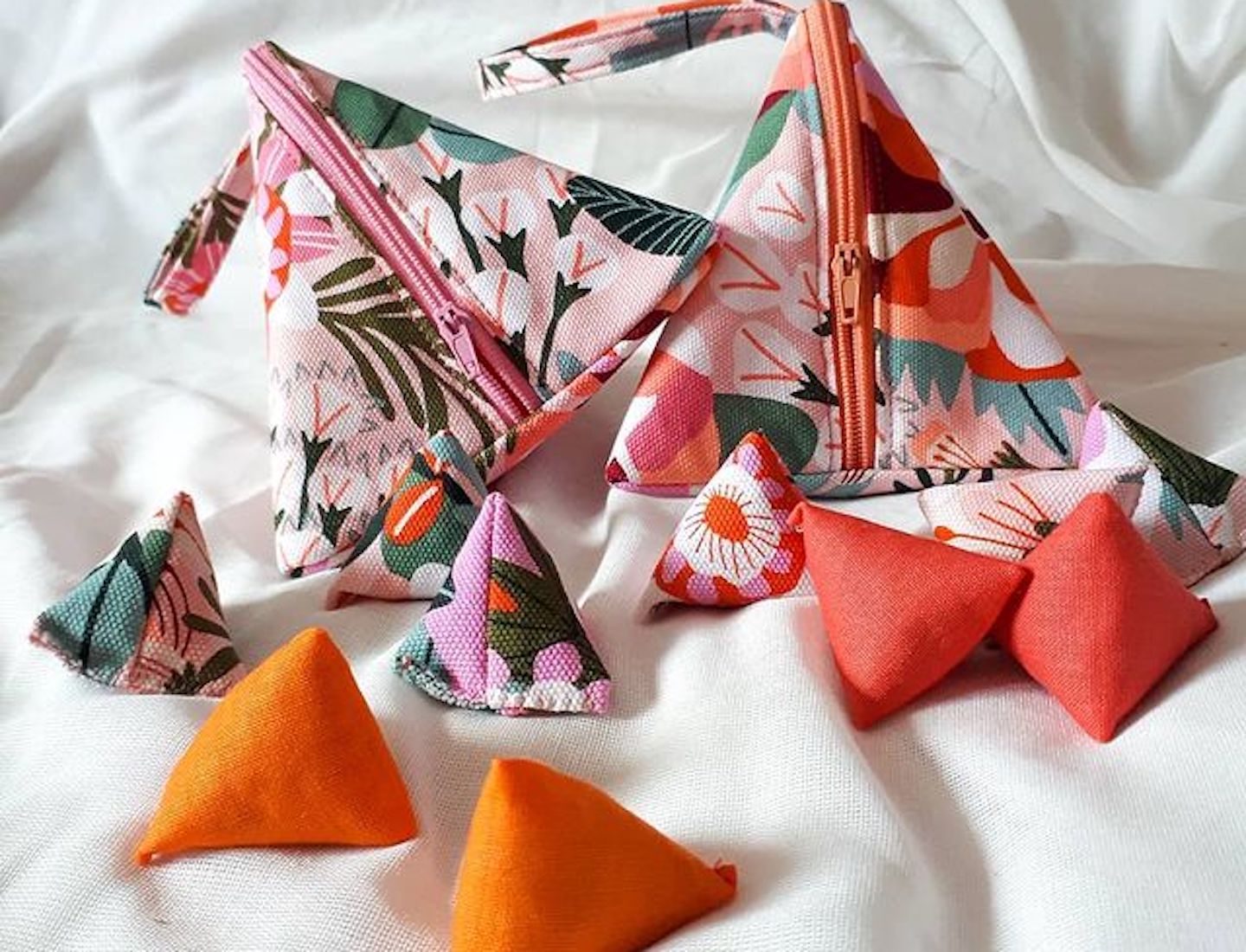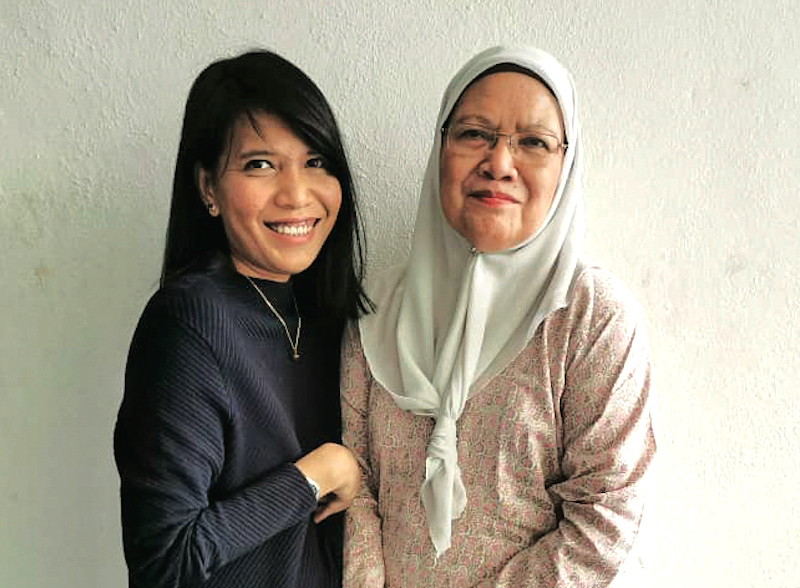
Stitch releases fabric handsewn products at a time when they may be most popular or most needed (All photos: Stitch)
If you grew up with the internet like I did, you would be familiar with the older generation’s scoffing at your sitting in front of a screen for hours and preaching the benefits of the outdoors. To be fair, traditional games of the past in Malaysia, such as congkak, guli (marbles),batu seremban (five stones) and kite-flying are not played as much today. To reintroduce one such game, grandmother Majmin Zakaria decided to get sewing. Her daughter, Leanne Ali, says: “She started making batu seremban for my nieces and nephews, her grandkids, to play. They took it to school and then their friends wanted to have them as well. It was the same when I was a child. Then one day, I said, ‘Why don’t we make it commercial?’ because most kids don’t really know about batu seremban.”
Majmin is retired and considers time spent at her sewing machine a hobby, whereas Leanne is a freelance graphic designer who helps run the business side of things. Initially, mother and daughter decided to start small. “My sister-in-law has her own online home business, so we started selling through her. Later, we thought, why not create our own brand for fun,” Leanne says. Naming their brand “Stitch” — a catchy and versatile name for a wide range of sewn products — they opted not to start with batu seremban. As Raya was coming up, Leanne and Majmin instead chose to make and sell cloth money pouches to suit the season. They launched Stitch in April 2019 through an Instagram page.
Stitch releases fabric handsewn products at a time when they may be most popular or most needed. For instance, when the “no straw” campaign began, it created pouches that came with a metal straw and cleaning brush. Majmin and Leanne then began selling the batu seremban right around the school holidays. “We waited to promote it at just the right time. We were quite surprised by the number of people who were attracted to it,” Leanne says. Stitch’s batu seremban sets are quite special because they come in a bold range of hues and are sold with a matching triangular pouch in which to store them.
img-20210204-wa0005_1.jpg

All of Stitch’s products are made to order, minimising wastage and also allowing for a little customisation. This means that the business does not have any stock put away in a storeroom, and customers can get exactly what they want. The partners tried selling their wares at a bazaar once, but were put off by the idea of making a large amount as it made them feel the items were less personalised. “We don’t want them to be mass-produced and for everyone to have the same thing. There are a lot of nice designs and fabrics, so I just want to have a little bit of every good design out there,” Leanne explains. The only downside to their made-to-order policy is handling the workload. While Leanne does help with cutting, Majmin does all the sewing, which means things can get challenging when big orders come their way.
When Covid-19 hit, they found it difficult to source for fabrics. “During the Movement Control Order (MCO) period, the orders still came in regularly but the challenge was stocking up on fabrics. We don’t have suppliers; we go to the shops, feel the fabrics and choose them ourselves. We don’t have a big amount of stock in the house because we want to change the designs and like to make small numbers per batch,” Leanne explains. Small quantities lend a certain exclusivity to Stitch’s designs so that the items feel more special. It also allows the duo to explore more fun prints and patterns.
Majmin also began knitting handy mask extenders in a beautiful range of colours, which were quite well received by customers. During MCO 2.0, they have had to buy fabrics online and visit stores closer to home, which they never would have done otherwise. Other than mask extenders, straw pouches and batu seremban, Stitch also began producing essential oil pouches — as there was a growing demand for them during the lockdown — and, most recently, a foldable fabric tray.
Even with the pandemic casting a pall of uncertainty over the future, Majmin and Leanne are positive about their business, especially with their batu seremban. “I’ve been playing it since I was in school. You can play on your own or with two, three or five friends. It’s very versatile and unique. I hope one day we can promote this game to the rest of the world — maybe through the Malaysian high commission in London or embassy in Germany. We give them our batu seremban so they can promote it in that country. My dream is to make this game — and our traditions and roots — more well known,” Leanne says.
This article first appeared on Feb 15, 2021 in The Edge Malaysia.


